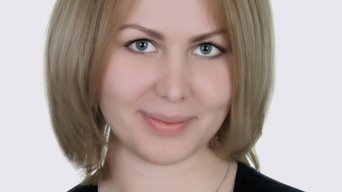
The war in Ukraine continues and for the time being there is no end in sight. For senior researchers and professors, TUM Institute for Advanced Study has launched a fellowship program that awards grants for an initial six-month research stay at TUM. With a first group of ten researchers already working on their projects, we have now welcomed another round of scientists. Among them is Prof. Julia Yereshko, who arrived in Munich at the end of April with her mother, grandmother and two dogs. We spoke with her about her adventurous journey to Bavaria and how she is exploring the opportunities presented by this acute crisis.
Like many other people, Prof. Yereshko was caught off guard by the sudden and heavy attack of the Russian army at the end of February. “When bombs hit Kiev at 4 am in the morning, I grabbed my mother, grandmother and our two dogs and we left the city by car,” she tells us. For the first few weeks, they stayed in the Ukrainian mountains. There was not much more to do than follow the news and latest developments on the Internet. When, in this situation, Prof. Yereshko saw a post on Facebook about the fellowship program at TUM, she immediately contacted the program’s managing director, Dr. Ulrich Marsch, and put together the necessary documents whilst leaving Ukraine. „I finished writing my proposal at 3 a.m., when it started snowing already Polish in the mountains,“ Prof. Yereshko recalls. When they passed Germany, there still wasn’t an answer from TUM. But when they arrived in France, Prof. Yereshko got accepted and the group started their journey back to Munich. She had already been to the Bavarian capital before as a tourist. “Back then, I even came to see TUM and took a selfie,” tells us Prof. Yereshko. “I thought it would be nice to work here. I still can’t quite believe this thought has now become a reality.”
Seeing the opportunities for the international community
At TUM, Prof. Yereshko has already been connecting well with her host Prof. Hanna Hottenrott. „We had great chemistry right from the beginning and I couldn’t be happier about our partnership,“ Prof. Yereshko says. The two scientists want to take a look at the opportunities presented by the current crisis. „In economic history, after every crisis there is a leap in scientific, economic and cultural development,“ Prof. Yereshko states. “Yes, this war is horrible and it’s important to talk about it. But also you need to look at what may arise from it. History has taught us that war also triggers a surge in innovation,” the scientist explains. And indeed, there are several inventions that were originally intended for war but were then adapted to normal life, such as passenger planes, washing machines, instant coffee and even zippers. For Prof. Yereshko, the crisis is also an opportunity to strengthen relations between Germany and Ukraine and to work together, for example looking at the economics of science. Prof. Yereshko sums it up: “There is a saying: The night is the darkest just before the dawn. I think that’s my mantra now.”
Learning and teaching despite all circumstances
In addition to gathering information for her study, Prof. Yereshko continues to teach as an Associate Professor at the National Technical University of Ukraine “Igor Sikorsky
Kyiv Polytechnic Institute”. Some of her students are in other countries now, and some are still in Ukraine. “One student of mine is sitting on a tree somewhere in the mountains when we have class. His internet connection is poor. But since he wanted to participate in our Zoom sessions anyway, he got creative.” The scientist admires the strength of her students and her colleagues. Some professors are struggling on the front lines, but continue to teach their courses. "In our workplaces, we try to do our best - it also keeps us sane," she says.
How to help – in big and small ways.
In this exceptional situation, Ukrainian people hope for and appreciate the support from the international community. “It is important for us to understand that we are not alone in this situation,” Prof. Yereshko explains. On the political stage, that applies to nations pledging their support - but even small gestures from ordinary people can make a big difference in everyday life. "Along the way, I've met incredible people who have helped me tremendously, and I'm so grateful for each and every one of them," Prof. Yereshko shares. In Munich, she says, she is experiencing again for the first time that people around her behave normally. "Actually, it's a big relief for me because I don't feel like a refugee, I feel like myself again," Prof. Yereshko says. Dr. Ulrich Marsch and Prof. Hottenrott helped her feel at home at TUM. "TUM is a great community and I am happy to be a part of it," states Prof. Yereshko.